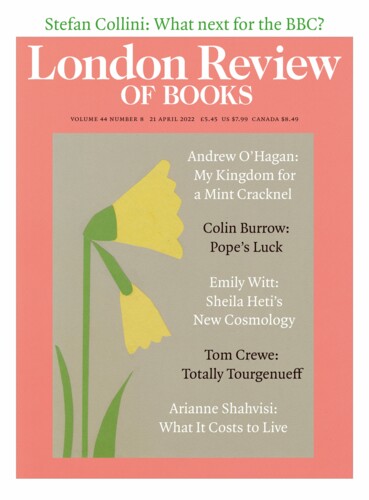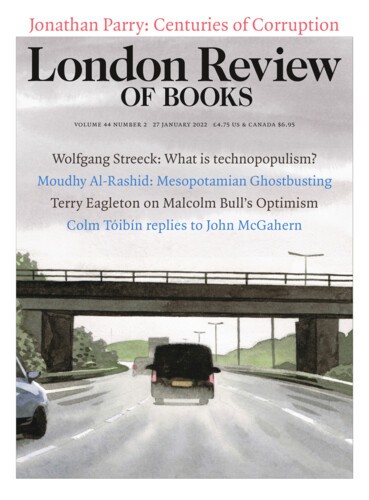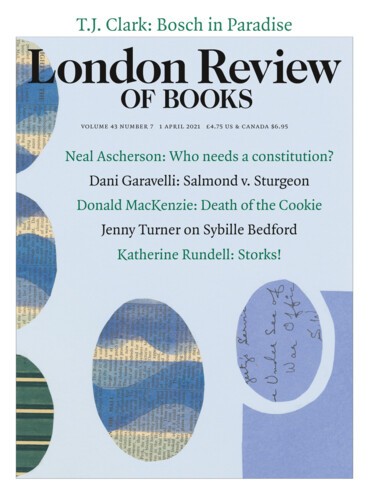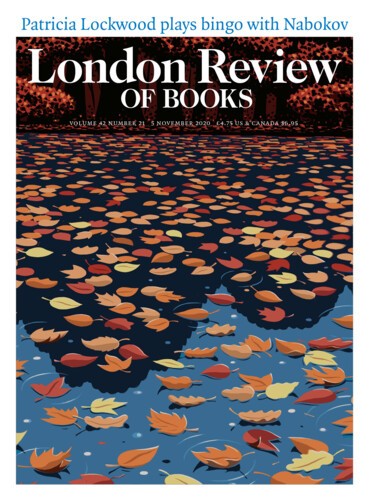Beebology: What next for the BBC?
Stefan Collini, 21 April 2022
Attitudes to the BBC are, for the most part, spirit-sappingly predictable. Politicians of all parties believe it is biased against them. One powerful lobby claims it is a hotbed of radicals bent on undermining national identity, another that it is the mouthpiece of the establishment. Some critics denounce the licence fee as insulating the BBC against the bracing winds of competition, while others complain that the corporation has already abandoned its public service remit in the search for profit. One chorus takes up the theme that programming remains ‘elitist’ and ‘middle class’, another that it has become demotic and debased. Many people seem to feel that so long as The Archers and the shipping forecast are left untouched, then all is right with the world; others seem to think that the problem is precisely that The Archers and the shipping forecast have been left untouched for too long. It’s not easy to come up with any really new complaints about the BBC. Faced with this repetitive litany of charge and countercharge, what contribution can historians make?




